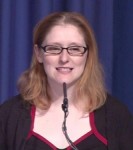I am a palaeoecologist at the Open University. My research involves reconstructing how our planet has changed over longer time scales in the past (1-2 million years). At first glance my research does not seem entirely relevant to current climate change but in fact it is integral. The climate system is hugely complicated and we still don’t fully understand how all the aspects work or how they interact together. One way of learning how the system operates is to simply observe it. The longer you observe it; then the better you will understand how it works and what are the possibilities for how it may change.
Tag Archives: Public engagement with research
Happy 3rd Birthday: RCUK Public Engagement with Research Concordat

Public engagement with research has come a long way since 2000. The pace of change has quickened significantly following the establishment of the National Co-ordinating Centre for Public Engagement (NCCPE), the completion of the Beacons for Public Engagement programme, the embedding of research impact within Research Council grant applications and the Research Excellence Framework (REF 2014), and the 2010 publication of the RCUK’s Concordat for Engaging the Public with Research.
Whilst each of these developments was significant, the publication of the RCUK Concordat three years ago was a watershed. In effect, its four principles were a mandate for embedding public engagement within the UK’s research culture. To celebrate the third anniversary of the Concordat's publication RCUK have published another booklet called Inspiration to Engage.
...continue reading
My experience as a British Science Association Media Fellow
I was selected as one of the 2013 cohort of ten British Science Association Media Fellows. This is a scheme which places scientists with a media host for a month in the summer to learn about how journalists produce news reports of scientific research.
I was chosen by The Guardian so I packed myself off on the early commuter train to their head offices in London. Day one was a bit of a shock as it was such a change from my day job in the Planetary and Space Sciences laboratories at The Open University.
...continue reading
TED-Ed: engaging with astrobiology research

As well as a Postdoctoral Research Associate in the Department of Physical Sciences at the Open University I have also been selected as a TED Fellow. Having been an avid watcher of the TED talks for many years I was inspired to apply to the Fellowship scheme so I could have a global stage on which to share the fantastic research being conducted in Astrobiology and to educate people worldwide on the subject of life in space.
Biology Week – a celebration of the biosciences

I was recently involved in the organisation of an event for local secondary school pupils for the Society for Biology’s ‘Biology Week’ initiative supported by The Physiological Society. The purpose of Biology Week is to celebrate all aspects of the biosciences. We set up a series of interactive displays and lectures and a dedicated online resource available through OpenLearn.
How to lose publics and alienate people

Social exclusion in public engagement with science
On Monday last week I gave a presentation as part of the ‘Engaging Research’ seminar series being run at the Open University (as you might have guessed since this is their blog!) The seminar series runs in conjunction with two RCUK-funded projects: 'An open research university'; and 'Engaging opportunities'.
My research interests are around who ‘counts’ as a public for so called ‘public’ engagement and how do engagement practices contribute to the exclusion of certain groups.
Green, gold and exploding books

Martin Hall, Vice-Chancellor of the University of Salford, came to the OU today to talk about the challenges and opportunities of open access publishing. This was part of Open Access Week at the OU.
The green and gold swamp of confusion
The mire of confusion around the green and gold models of open access – and which is ‘best’ – is trampled by many feet. Too long to rehearse here, I’d suggest a quick definition is that in ‘’gold’, the author pays to publish their work in an open access journal, and it is then instantly openly available. This raises the question of who pays the charges, of course. ‘Green’ open access relies on authors themselves archiving, in publicly-available repositories (such as the Open University’s ORO) a pre-publication version of work that they have published elsewhere.
Engaging A-Level students with Postgraduate Researchers
I finished my PhD in volcanology with the Open University earlier this year, and spent my summer working for the Brilliant Club. The Brilliant Club are a small but growing charity whose mission is to widen access to highly selective universities in schools serving low participation communities. They do this by placing postgraduate research students in schools to deliver small group university-style tutorials to pupils aged 10-18.
While most postgraduate research students teach one or two groups a week over the course of five weeks I taught five groups in four different schools in and around London. I took on this larger teaching load as I had already finished my PhD and was otherwise at a bit of a loose end.
An open research university

Research with people at the centre
Champion’s blog; star date 2013.07.17. This is the blog of the OU's RCUK-funded Catalyst, 'An open research university'. But our mission isn’t to boldly go. Rather, our three-year mission is to embed the principles, values and reflective practices of public engagement within the research culture of Open University researchers. This requires all OU researchers to think more strategically about how we plan our research.
This requires us to think (yet again, I know) about culture change...
"If you're the University's Champion for Public Engagement with Research can you tell me how many people it takes to change a university's research culture?" I guess the obvious answer is, "I don’t know at the moment, but I do know that those involved really have to want to change."



